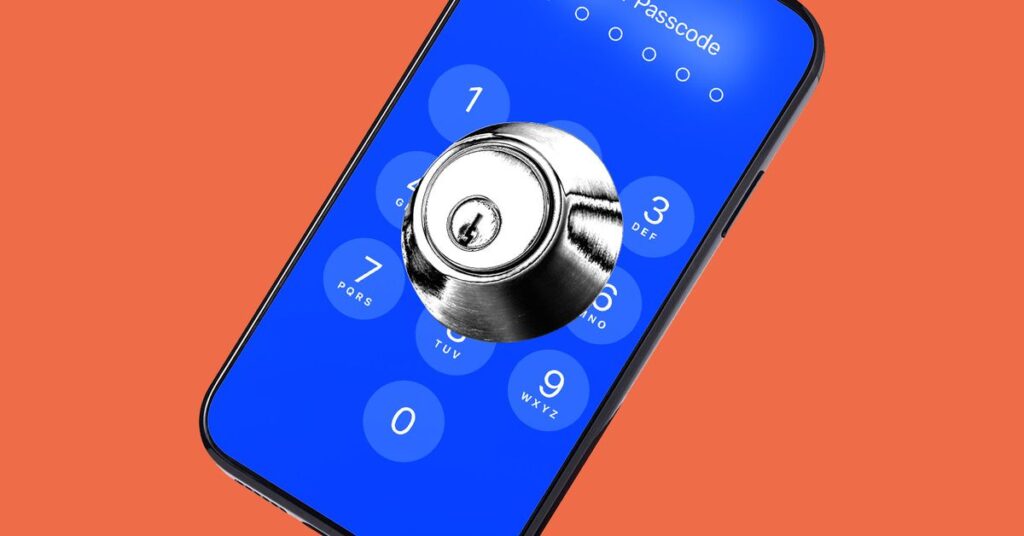A federal judge in New York has ruled that Customs and Border Protection (CBP) cannot search travelers’ cellphones without a warrant. The ruling theoretically applies to land borders, seaports and airports, but in practice only applies to the Eastern District of New York.
That’s not a big deal, though, since the area includes John F. Kennedy Airport in Queens, which is the sixth-busiest airport in the country. According to publicly available enforcement statistics, U.S. Customs and Border Protection conducted more than 230,000 searches of electronic devices at land borders, seaports and airports nationwide between fiscal years 2018 and 2023.
The ruling stems from a criminal case against Kurbonali Sultanov, a naturalized U.S. citizen from Uzbekistan whose name triggered Treasury enforcement An alert on the communications system identified Sultanov as a potential purchaser or owner of a child, and he was ordered to turn over the phone to U.S. Customs and Border Protection (CBP). Agents told him they had no choice but to unlock the phone, which he handed over to him and then was interviewed by officers from Immigration and Customs Enforcement’s Homeland Security Investigations (HSI) unit, Sultanov said. Homeland Security Investigations agents read Sultanov his Miranda rights before questioning him, and he said he understood “50/50.”
Government investigators later obtained search warrants for the phone that U.S. Customs and Border Protection searched at the airport and for another phone that Sultanov had when he entered the country. During his criminal trial, Sultanov filed a motion to suppress evidence obtained from his phone, arguing that the initial search of his phone was illegal under the Fourth Amendment.
Judge Nina R. Morrison of the Eastern District of New York denied Sultanov’s motion to suppress evidence, saying a second forensic search of his phone was conducted in good faith and pursuant to a search warrant. But Morrison ruled in favor of Sultanov on Fourth Amendment grounds, arguing that the initial search of his phone was unconstitutional.
In 2021, a U.S. appeals court ruled that CBP agents can search travelers’ phones and other devices without a warrant and without reasonable suspicion, overturning an earlier ruling that found that without a warrant and without suspicion The search violated the Fourth Amendment.
Morrison cited the judge’s ruling in the case, Alassad v. Mayorkasand other cases in which judges have deemed forensic examinations of cellphones to be unusual. exist Alassadthe court ruled that “basic border searches [of electronic devices] was a routine search,” but did not determine whether a forensic search required reasonable suspicion.
“This Court respectfully reaches a different conclusion,” Morrison wrote. “Especially given this Court’s record regarding the vast potential scope of so-called ‘manual’ searches, the distinction between manual and forensic searches is too tenuous to warrant an absolute exemption from the Fourth Amendment’s search warrant requirement. . As technology evolves, it could collapse completely.
Although the ruling’s geographical scope is limited, the case’s implications extend far beyond the Sultanov case. Columbia University’s Knight First Amendment Institute and the Reporters Committee for Freedom of the Press filed an amicus brief in the case, arguing that allowing CBP to conduct warrantless searches of travelers’ cellphones at ports of entry endangers press freedoms. Journalists and “targets of political opposition (or their colleagues, friends or family) need only pass through an international airport once and the government has unfettered access to their closest ‘intimate persons’,” Morrison wrote in his ruling. A window into one’s life.
(“Intimacy Window” quotes from Supreme Court ruling Carpenter v. United Statesin which a judge ruled that police must obtain a search warrant to seize cell tower location records.
“As the Court has recognized, warrantless searches of electronic devices at the border are an unwarranted intrusion into travelers’ private expression, personal interactions, and journalistic endeavors, activities that the First and Fourth Amendments are designed to protect, “Scott Wilkens, the company’s senior attorney, said. Knight First Amendment Institute said in a statement.
A CBP spokesperson contacted edge said the agency cannot comment on pending criminal cases.
CBP’s ability to search travelers’ cellphones has come under increasing scrutiny in recent months. In April, a bipartisan group of senators sent a letter to Homeland Security Secretary Alejandro Mayorkas requesting information about what data the government retains from these searches and how it is used. “We are concerned that current policies and practices governing border searches of electronic devices depart from the intended scope and application of border search agencies,” said Sens. Gary Peters (D-Mich.) and Rand Paul (R-KY), Ron Wyden (D-Ore.) and Mike Crapo (R-Idaho) wrote.

